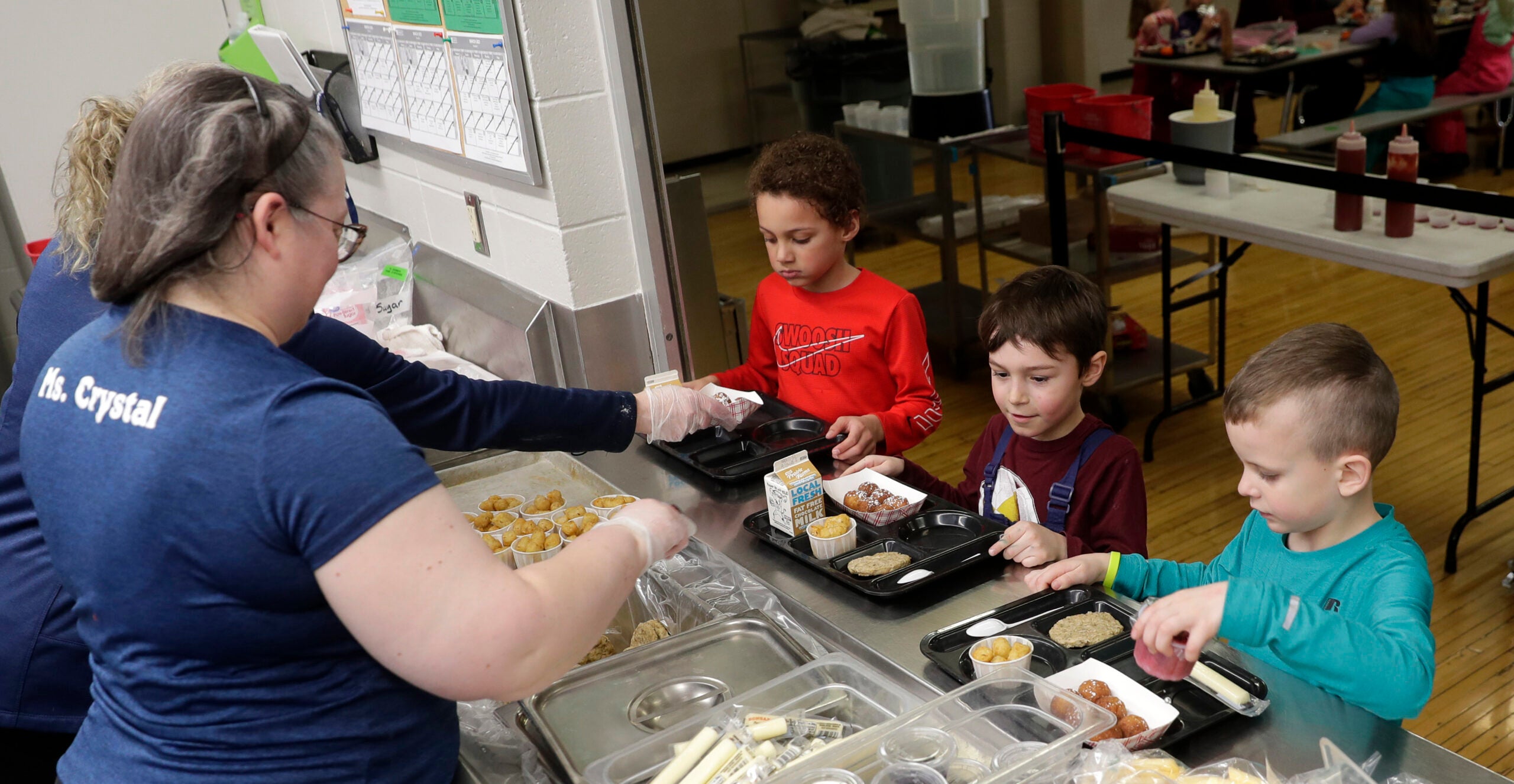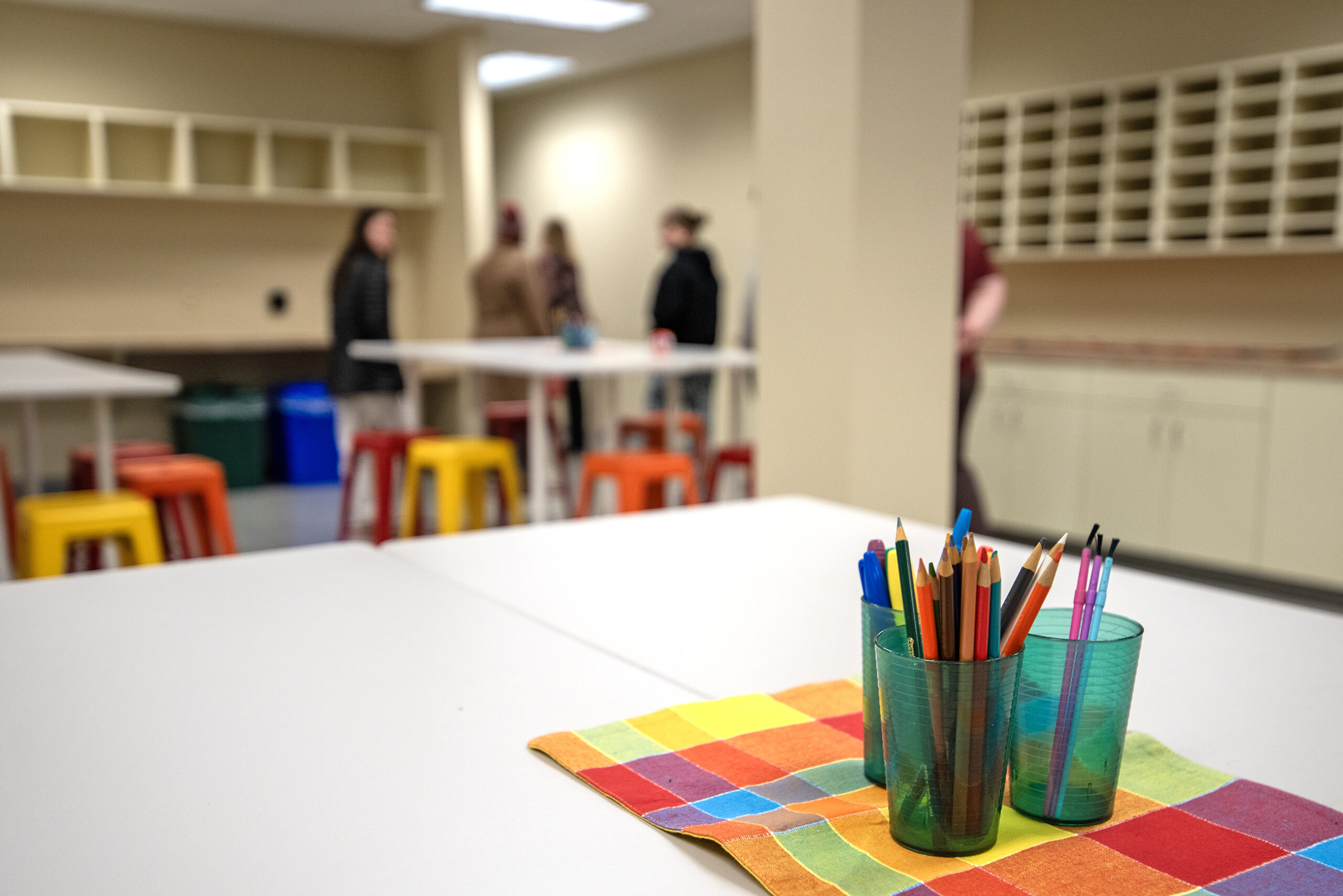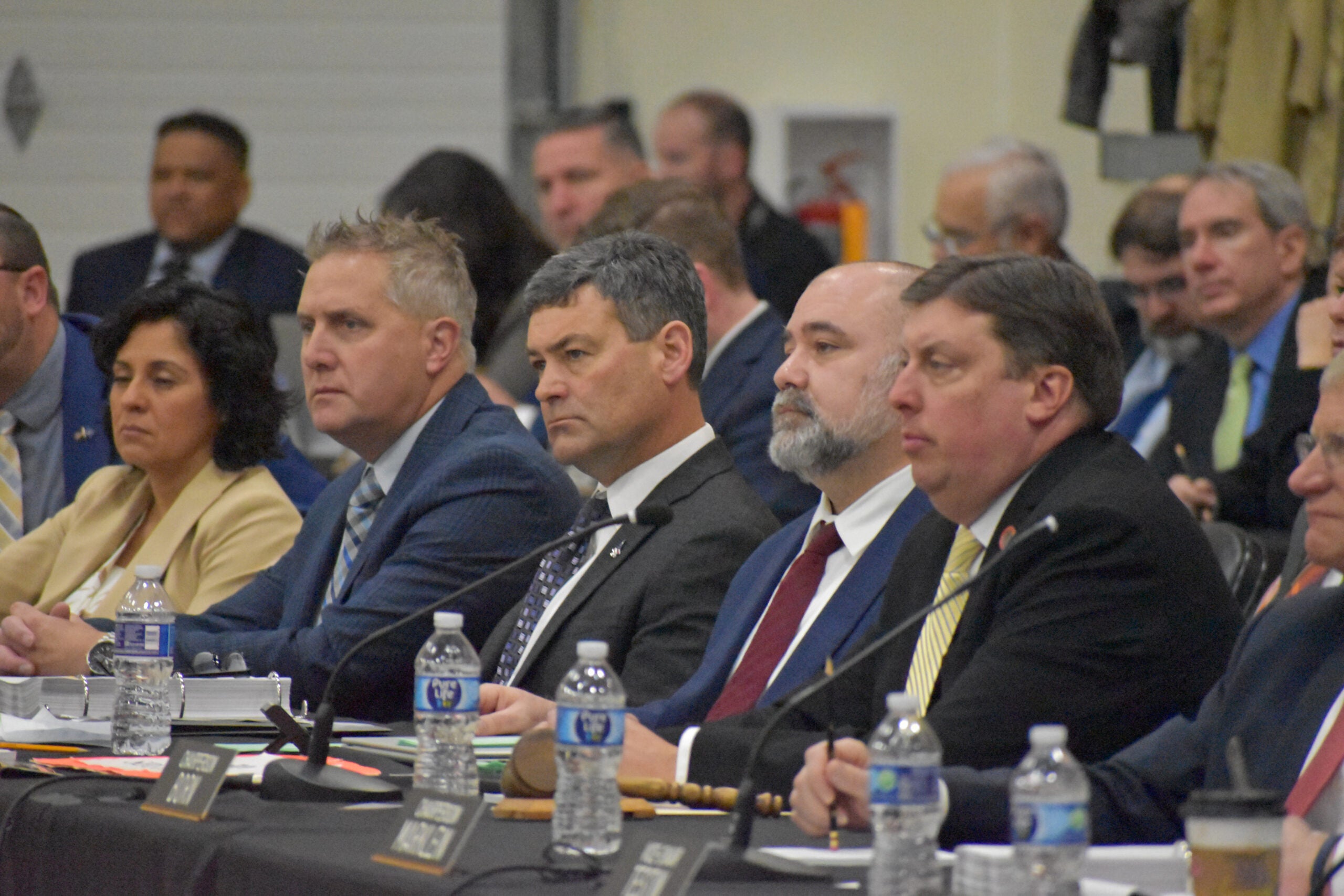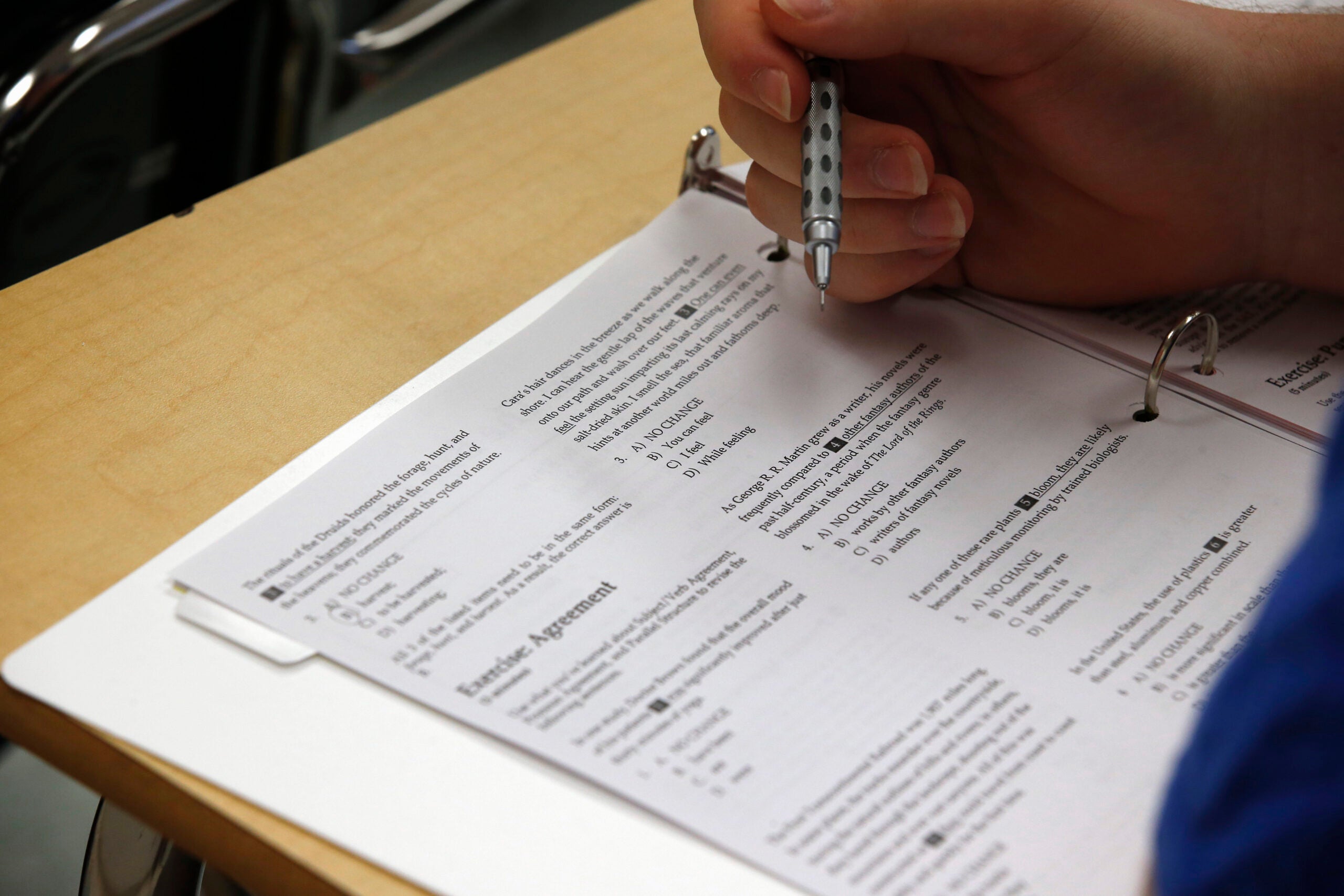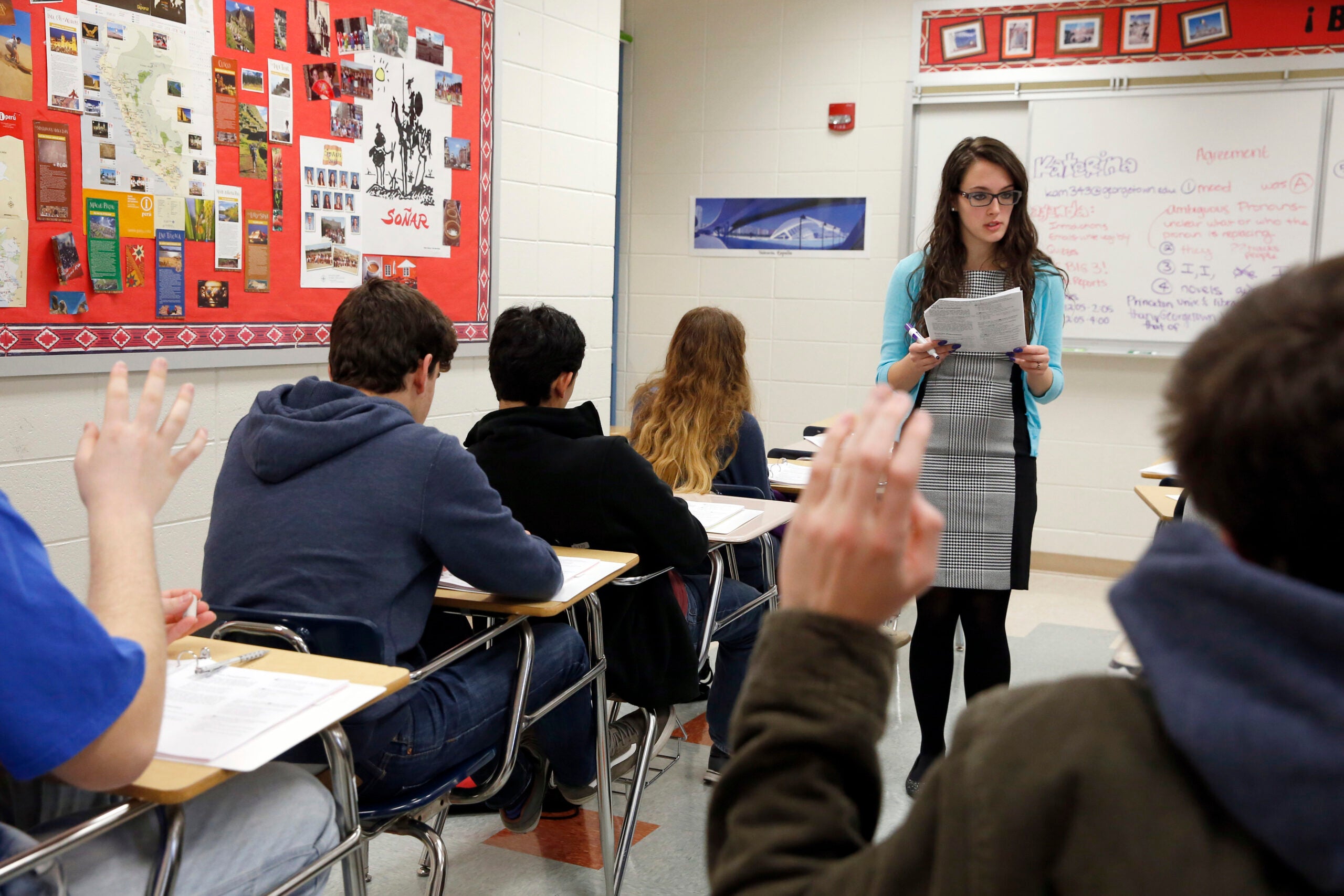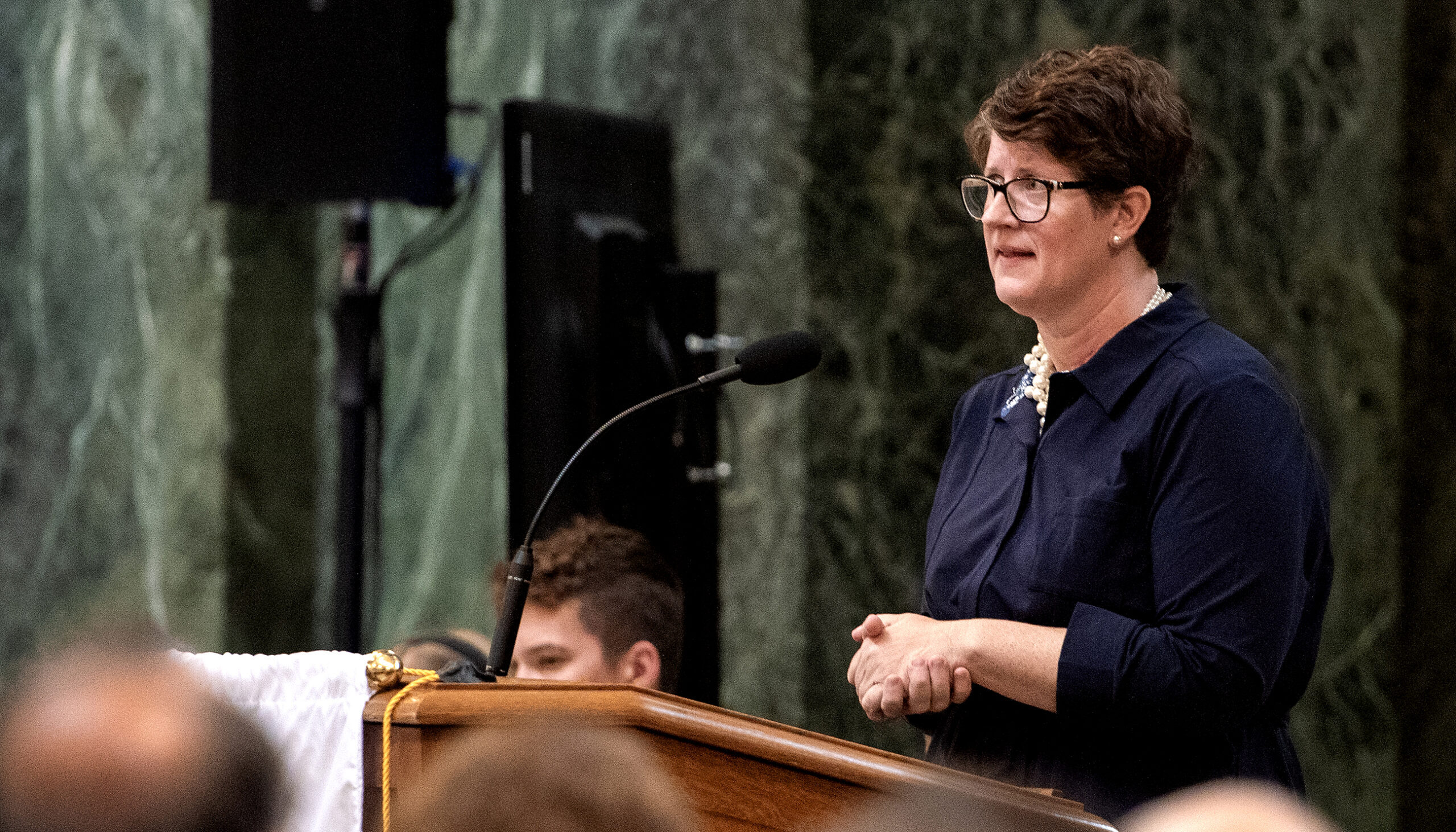Wisconsin Superintendent Jill Underly has been hinting at what her proposed 2025-27 public education budget would look like for the last several weeks with priorities focusing on mental health, nutrition and teacher retention.
And on Monday, Underly, who will be seeking reelection in April 2025, let lawmakers and the public know her budget would target the state’s $4.5 billion surplus.
“Wisconsin’s public schools have been asked to do more with less for too many years — and the upcoming biennial budget presents a critical opportunity to make meaningful change and support the future of our kids,” Underly said at Conrad Elvehjem Primary School in McFarland.
Stay informed on the latest news
Sign up for WPR’s email newsletter.
“These investments will significantly reduce the number of referendums for operating costs in local communities, by having the state step up to its responsibilities,” Underly continued. “We will hold down local property taxes, while investing in education.”
The Department of Public Instruction’s overall budget request will propose just over $4 billion in new spending.
That spending includes a per student increase to revenue limits of $425 in fiscal year 2026 and by $437.75 in fiscal year 2027, totaling $1 billion over the biennium.
This will ensure property tax increases are limited to an average of 1.5 percent over the next two years, Underly said.
Underly also wants to increase the special education reimbursement rate to 90 percent by 2027.
The current reimbursement rate is 31.5 percent.
“The department’s policy position is clear — the state should reimburse 90 percent of special education costs for local schools,” Underly said. “These are mandated services and schools need the help. Our proposal puts us on a path to achieve that goal in the coming years.”
Other proposals in Underly’s budget include $311 million for school nutrition, $304 million for youth mental health and $60 million to help school districts retain teachers.
Aaron Tarnutzer, superintendent of McFarland schools, said increasing the special education reimbursement rate alone would mean a significant amount of money would not have to come out of the district’s general fund.
In April, the McFarland School District’s $10.6 million referendum failed, which meant significant cuts, Tarnutzer said. Last week, voters approved a $5.25 million recurring operational referendum to be phased in over three years.
“What we heard was frustration and anger, not with the district, but with the lack of support from the state,” Tarnutzer said.
State Sen. Kelda Roys, D-Madison, serves on the Legislature’s Joint Finance Committee. She said she believes lawmakers are more open to supporting public education initiatives than they have been in the past.
Democrats flipped four Republican districts in the Wisconsin Senate on Nov. 5, leaving an 18-15 Republican majority.
“When legislators have to face real accountability from the voters, I think that’s going to make some of the Republicans that have voted to cut public education take notice,” Roys said.
Republican leaders, including Assembly Majority Leader Robin Vos, R-Rochester, did not return repeated requests for comment.
Mike Ford, director of the Whitburn Center of Governance and Policy Research at the University of Wisconsin-Oshkosh, said initial budget requests from any state department are just a starting point.
Ford said DPI’s budget is the most interesting because the state superintendent position is elected, so what Underly submits is essentially a political document.
Wisconsin Public Radio, © Copyright 2025, Board of Regents of the University of Wisconsin System and Wisconsin Educational Communications Board.
